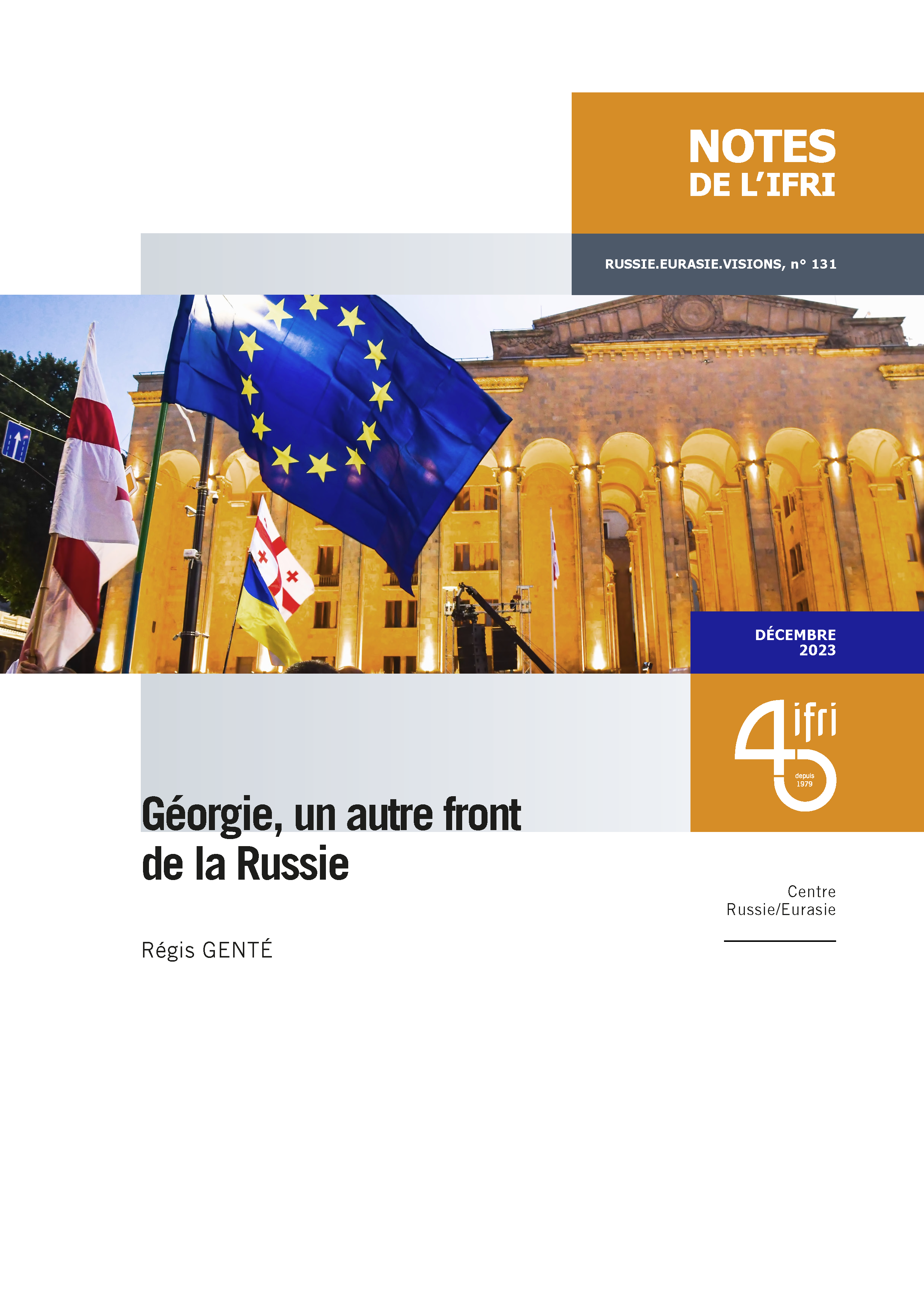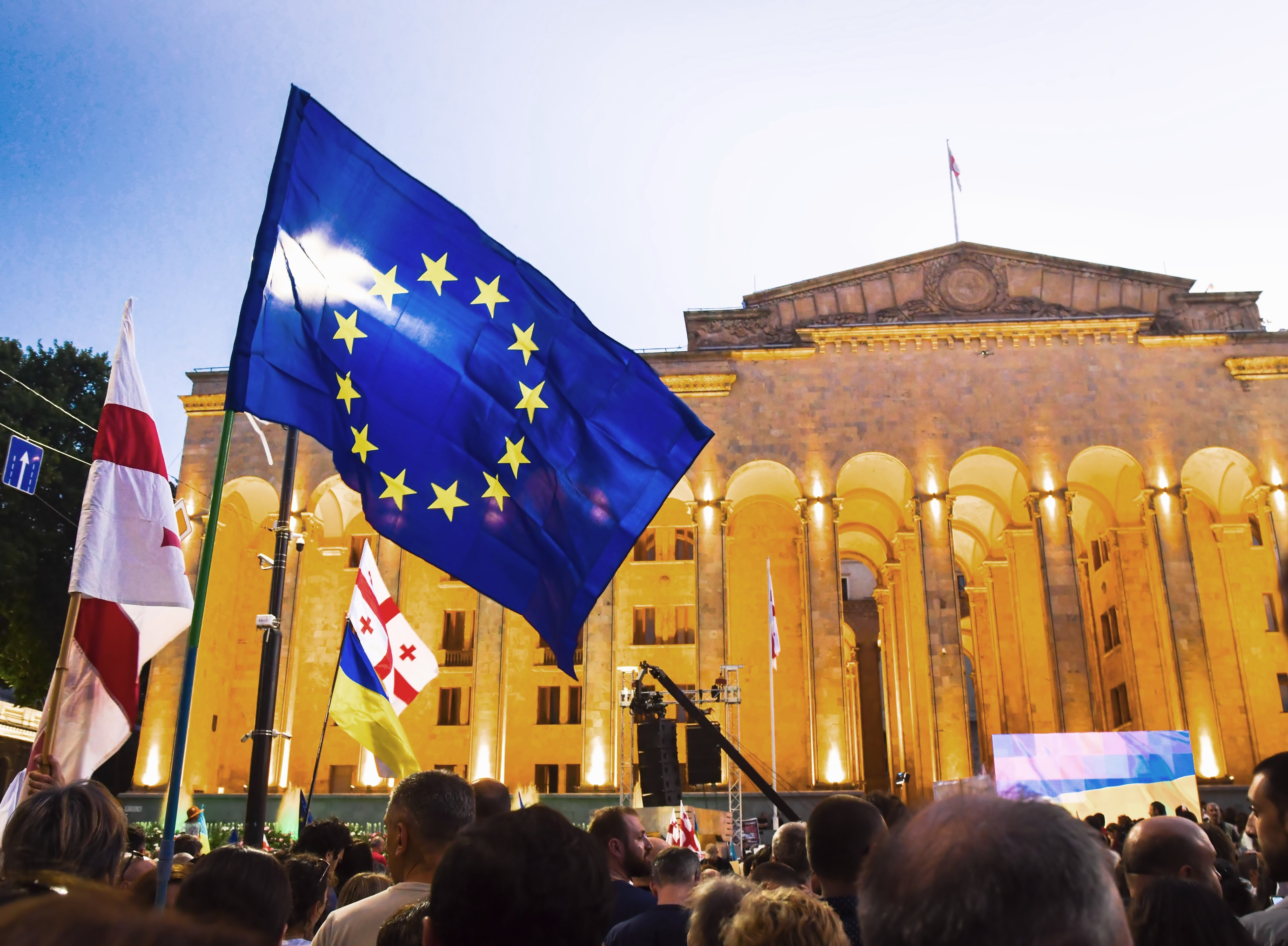Georgia: Another Russian Front

The end of 2023 is due to mark a turning point in Georgian history. In December, the European Council will decide whether to award the country European Union (EU) candidate status.

For the majority of Georgia’s 3.7 million citizens, this decision is extremely important, as 81 percent of them say that they want their country to join the EU. However, the government and the ruling party Georgian Dream, under the informal control of the oligarch Bidzina Ivanishvili, have consistently acted contrary to this deeply rooted popular desire since coming to power, taking a foreign policy approach, at least since 2021, that has undermined relationships with Western partners and brought the ex-Soviet republic back into Russia’s sphere of influence. After twenty years of pro-European policy, this divergence between Georgia’s rulers and its population has provoked a succession of political crises in the country over the last few years. Moscow is supporting this dramatic shift in Tbilisi’s strategic orientation and may even have initiated it. Numerous indicators show that in practice Russia, which waged war against Georgia in 2008, continues to regard its neighbor as another battlefield in its confrontation with the West. These developments in Georgian politics presage the emergence of major political and geopolitical tensions.
Régis Genté has been a journalist and specialist in the former Soviet bloc since 2002 and is based in Tbilisi (Georgia).
Download the full analysis
This page contains only a summary of our work. If you would like to have access to all the information from our research on the subject, you can download the full version in PDF format.
Georgia: Another Russian Front
Related centers and programs
Discover our other research centers and programsFind out more
Discover all our analysesRussia, the Palestinians and Gaza: Adjustments after October 7th
The Soviet Union (USSR), and subsequently the Russian Federation as its internationally recognized legal successor, has consistently sought to play a visible role in efforts to resolve the Israeli-Palestinian conflict.
Deathonomics: The Social, Political, and Economic Costs of War in Russia
The report attempts to outline and examine a truly new phenomenon in Russian society, dubbed “deathonomics”—the making of a mercenary army against the backdrop of the Kremlin’s war in Ukraine, eventually replacing both the Soviet (conscript) and early new Russian (contract) armies. It notes that, by the end of 2023, this trend had turned the military service into one of the highest-paying professions in the country, something not seen in Russia on such a scale since the late 17th century.
Russia's Asia Strategy: Bolstering the Eagle's Eastern Wing
Among Russia’s strategic priorities, Asia traditionally played a secondary role compared to the West. In the mid-1990s, then Foreign Minister Yevgeny Primakov initiated a rapprochement with China and India. Then, in 2014, deteriorating relations between Russia and the West prompted Moscow to begin its “great pivot to the East”.
Kazakhstan After the Double Shock of 2022: Political, Economic and Military Consequences
The year 2022 represented a dual shock for Kazakhstan. In January, the country faced its most severe political crisis since independence, followed in February by Russia’s full-scale invasion of Ukraine, which cast uncertainty over the borders of post-Soviet states. These consecutive crises profoundly shaped Kazakhstan’s domestic and foreign policy.











